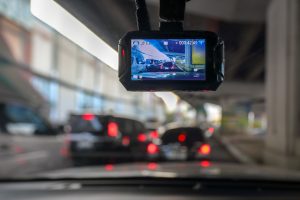In today’s digital age, video evidence has become increasingly crucial in DUI cases throughout Florida. As a Fort Lauderdale DUI defense attorney for over two decades, I’ve seen how police dashcam and bodycam footage can dramatically impact the outcome of DUI prosecutions. This technology presents both opportunities and challenges for defendants, and understanding its implications is essential for anyone facing DUI charges in Broward County.
The Double-Edged Sword of Video Evidence
Video footage often reveals crucial details that can strengthen a defense case in ways that written police reports simply cannot capture. Dashcam and bodycam footage can be used to demonstrate:
- Improper traffic stops. Florida law requires reasonable suspicion for a traffic stop under Terry v. Ohio and its progeny. Video evidence may show that officers lacked adequate justification for the initial stop, potentially leading to suppression of all evidence under the exclusionary rule.
- Field sobriety test irregularities. The National Highway Traffic Safety Administration (NHTSA) has established standardized protocols for field sobriety tests. Video often reveals that officers deviated from these protocols, administered tests on uneven surfaces, or failed to provide proper instructions — all factors that can undermine the reliability of these tests.
- Contradictions in police testimony. Officers’ courtroom testimony sometimes differs from what video evidence shows. In State v. Meador, 674 So. 2d 826 (Fla. 4th DCA 1996), Florida’s Fourth District Court of Appeal emphasized the importance of objective evidence in evaluating officer credibility.
- Normal Driving Patterns. Dashcam footage from the defendant’s vehicle or nearby traffic cameras sometimes shows normal driving behavior that contradicts police claims of erratic driving or impairment indicators.
- Physical Coordination.: Bodycam footage may actually demonstrate that a defendant exhibited better balance, coordination, and cognitive function than described in police reports.
On the flip side, video evidence isn’t always favorable. Prosecutors frequently use officers’ footage to support their cases. Video evidence may show:
- Clear Signs of Impairment. Slurred speech, bloodshot eyes, difficulty following instructions, or obvious balance issues captured on camera can be compelling evidence of impairment.
- Admission of Alcohol Consumption. Many defendants make spontaneous statements about drinking that are captured on bodycam footage, which can be used against them at trial.
- Failed Field Sobriety Tests. When properly administered and recorded, failed field sobriety tests can provide strong evidence of impairment.
- Dangerous Driving Behavior. Dashcam footage showing weaving, speeding, or other traffic violations can support the prosecution’s case for impairment.
To Record or Not to Record
Just as officers may record interactions during traffic stops or other police encounters, suspects, defendants and members of the public may do the same. The First Amendment protects the right to record officers in public, as established in Gilk v. Cunniffe, decided in 2011 by the U.S. Court of Appeals for the First Circuit. This principle has been consistently applied by Florida courts as well.
Recording police interactions on your cell phone during a DUI investigation can provide several advantages. Among these:
- Objective Documentation. Your recording creates an independent record of events that can’t be altered or mischaracterized later.
- Officer Accountability. The presence of a recording device often encourages more professional behavior from law enforcement.
- Evidence Preservation. Important details that might be forgotten or misremembered are preserved exactly as they occurred.
- Procedural Violations. Your recording might capture Miranda violations, improper questioning, or other constitutional violations that written reports wouldn’t reveal.

On the other hand, beware because just like a statement made to police without an attorney, evidence you record leading up to an arrest could come back to bite you. Among the significant risks you run:
- Incriminating Statements. You might inadvertently record yourself making admissions or statements that could be used against you at trial.
- Physical Evidence of Impairment. Your own recording might capture slurred speech, poor coordination, or other signs of impairment more clearly than police equipment.
- Spoliation Concerns. Once you create a recording, you have a legal obligation to preserve it as potential evidence. Deleting or losing the recording could result in adverse inferences at trial.
How a Fort Lauderdale DUI Defense Lawyer Will Approach Video Evidence
As a Fort Lauderdale DUI defense attorney, I approach video evidence strategically:
- Early Review. I obtain all available video evidence as quickly as possible, often before formal discovery, to assess its impact on the case.
- Technical Analysis. I work with experts to analyze video quality, timing, and any potential technical issues that might affect reliability.
- Comparative Analysis. I compare video evidence with police reports to identify discrepancies that might undermine the prosecution’s case.
- Motion Practice. When video evidence is favorable, I use it to support motions to suppress evidence or dismiss charges. When it’s unfavorable, I may seek to exclude it on technical or constitutional grounds.
DUI cases involving video evidence may require more sophisticated legal analysis and strategic thinking than those that don’t. The interplay between constitutional rights, evidence rules and DUI-specific principles creates a complex legal landscape that demands experienced navigation.
If you’re facing DUI charges in Fort Lauderdale or anywhere in Broward County, the stakes are too high to navigate this process alone. A conviction can result in license suspension, significant fines, jail time and long-term consequences for your career and reputation. By contacting an experienced DUI criminal defense lawyer as soon as possible, you’re more likely to ensure your rights are protected and your case receives the skilled representation it deserves.
Call Fort Lauderdale Criminal Defense Attorney Richard Ansara at (954) 761-4011. Serving Broward County.
More Blog Entries:
Tourists and DUIs: What Happens If You’re Arrested for Drunk Driving on Vacation in Fort Lauderdale? June 26, 2025, Fort Lauderdale DUI Defense Lawyer Blog
 Fort Lauderdale Criminal Attorney Blog
Fort Lauderdale Criminal Attorney Blog


